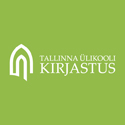Zwei Sprachen gleichzeitig? Nein, das schaff’ ich nicht: A Lithuanian-German Boy’s Journey to Active Bilingualism
Abstract
Whereas many children in bilingual settings do not speak the minority language, very little is known about receptive bilingualism from the onset of speech and about such bilinguals activating their dormant language. Drawing on longitudinal ethnographic data, this paper reports on a case study of a receptive simultaneously bilingual Lithuanian-German boy who later started speaking both of his languages. Parents can do much for their children’s bilingualism, but the child’s agency is very important as well. The latter is much determined by the macro-socialisation factors, primarily by the communicative motivation of the child to use the minority language outside the bilingual home. Next to confirming possible insufficiency of the OPOL model, the paper demonstrates how quickly passive languages can be activated and highlights the importance of continuity of input and the value of receptive bilingualism.
Keywords: early simultaneous bilingualism, receptive bilingualism, minority language, OPOL model, Lithuanian, German
Full Text:
PDFDOI: https://doi.org/10.22601/PET.2022.07.05
Refbacks
- There are currently no refbacks.
Published by / Kirjastaja:

ISSN 2504-6616 (print/trükis)
ISSN 2504-6624 (online/võrguväljaanne)
